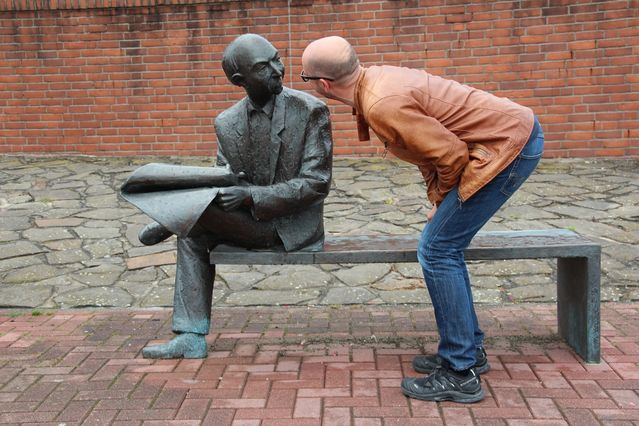
Career
3 Essential Tips for Mastering American-Style Small Talk
Use these tips to make small talk a proud part of your conversational repertoire
Posted November 19, 2017

There's no denying the key role small talk plays in today’s professional business culture, especially in the United States. But there's also no denying the fact that making small talk is a serious challenge that millions of foreign-born professionals and students who come from cultures where small talk was uncommon -- or even inappropriate. I’ll never forget the words of one Russian-born professional I worked with who said this about American-style small talk: “All this silly, friendly behavior. If you act like this in my country, you look like a fool.”
Nevertheless, to be effective in the US, you do need to learn to make small talk - and so here are a few quick tips to get you started.
Tip #1: Create a conversation starter from what’s immediately around you.
The one truth about small talk is that you will always have at least one thing in common with a complete stranger - and that’s the fact you’re in the same physical setting (assuming of course that you are!). So, use that to your advantage. Comment on that photo on the wall, or the fact that it just started raining, or the new laptop someone is using. These are easy conversation starters that are relevant and effective. For example:
“Is that the new iPhone. I’m thinking of getting one. Do you like it?”
“Look outside – can you believe it’s still raining. It feels like it hasn’t stopped for days?”
Tip #2: Ask open-ended questions to keep the conversation going.
These are questions that invite a longer response than simply “yes” or “no” and, as a result, have the potential of prolonging the conversation. For example, instead of saying “Did you like your trip to Mexico?,” ask: “How was your trip to Mexico?!” It’s a subtle difference, but an important one. You don't want your question to be answered with a simple "yes" or "no" because it can kill the momentum of the conversation. As in:
"Did you like your trip to Mexico?!"
"Yes."
End of conversation.
And by the way, this trick also works if someone asks you a question. For example, if someone asks “How are you?,” use it as an opportunity to provide a bit more information than "Fine" or "Good." Offer a bit more, like: “Good – thanks. I actually just got back from California yesterday and am still recovering! The goal is to give them something to “work with” in hopefully prolonging the conversation. For example, perhaps they’re been to California -- or are interested in your trip and will ask a follow up. But you’ll never know if you kill the conversation with that single word reply.
Tip #3: Work on ending the conversation gracefully
Many foreign-born professionals struggle ending small talk conversations. But it’s actually not as hard as it seems. Have an exit line, that signals the end of the conversation, and increases the odds of ending on a positive note. For example:
"I really enjoyed chatting with you. Would you ever be willing to meet up for a coffee?"
"I imagine that you have other people you need to speak with, but I wanted to let you know I really enjoyed speaking with you."
"Thanks so much for chatting with me. I really enjoyed hearing about your work."
The point is to show you enjoyed the conversation and, if relevant (and true) would like to chat again.
There's no question that small talk is one of the biggest challenges for foreign professionals in the US. But it’s not rocket science With a plan in place and a few key techniques, you’ll be well on your way towards mastering (and maybe even starting to like) this conversational ritual.
Interested in mastering small talk and other aspects of American business culture? Visit here to learn about my new online course on Mastering American Business Culture.

